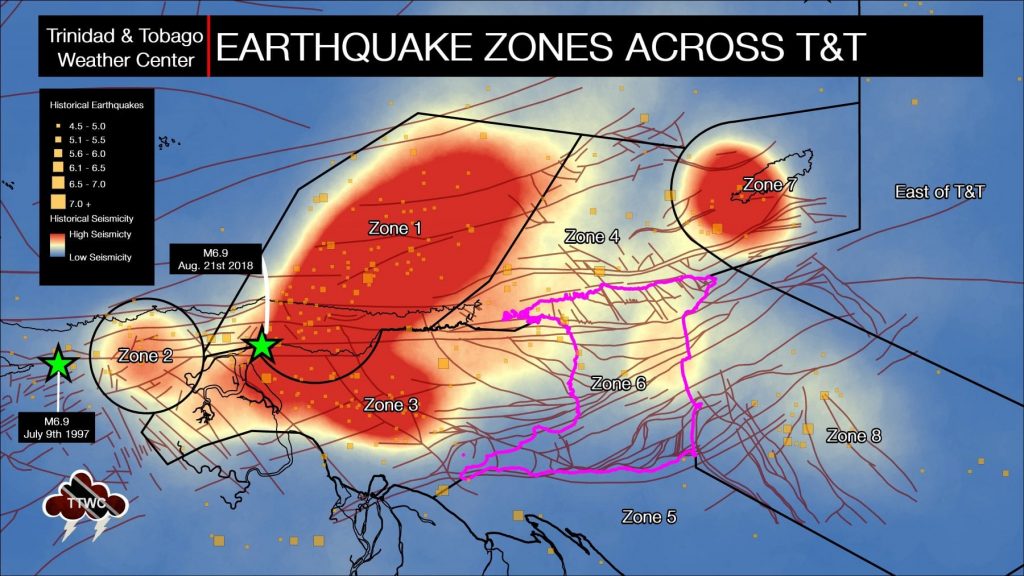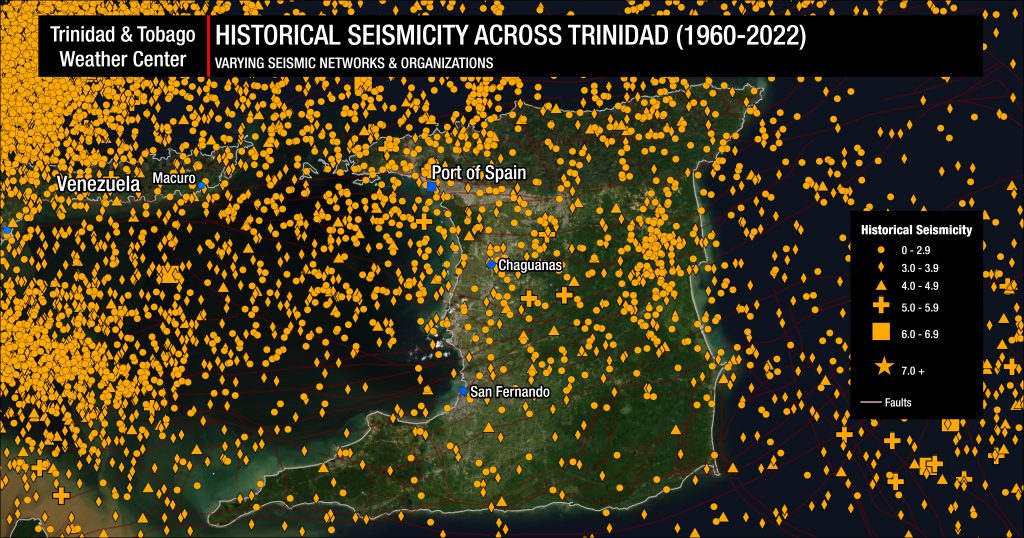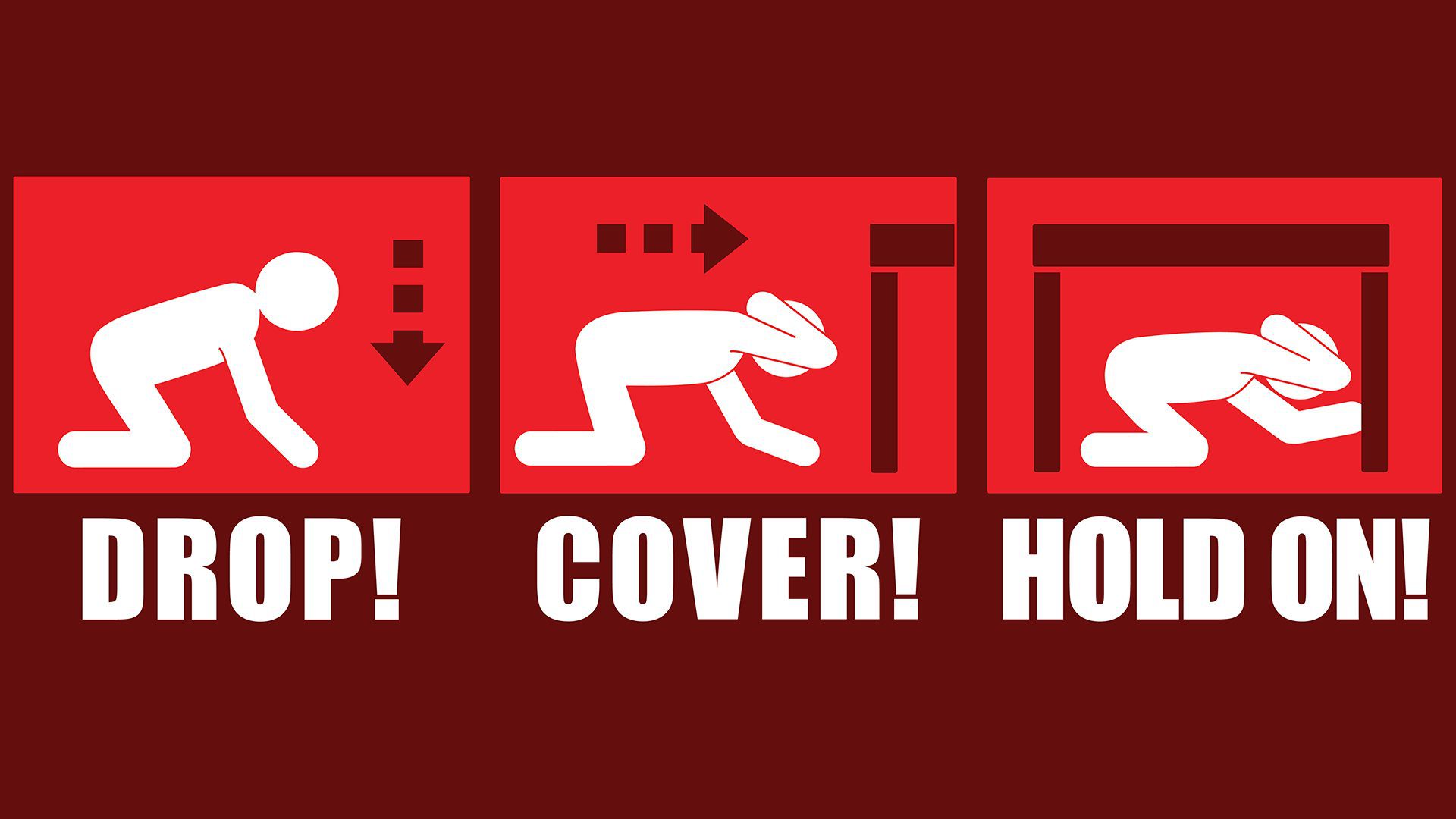At 10:23 AM on Thursday, May 6th, 2023, the University of the West Indies Seismic Research Centre (UWI SRC) recorded a minor magnitude 3.7 (mt) earthquake on land in Trinidad.
The earthquake was located at 61.580°W and 10.100°N, approximately 7.36 kilometers northeast of Los Iros, 9.14 kilometers southwest of Siparia, and 14.87 kilometers southeast of Point Fortin.

This information is preliminary and will be updated when an analyst at the UWI SRC reviews the information. The UWI SRC is the authority for seismic and volcanological information in the English-speaking Eastern Caribbean.
You can submit felt reports to the University of the West Indies Seismic Research Centre.
There was no tsunami threat.
There are four conditions necessary for an earthquake to cause a tsunami:
- The earthquake must occur beneath the ocean or cause material to slide within or into the ocean.
- The earthquake must be strong, with at least a magnitude of 6.5.
- The earthquake must rupture the Earth’s surface, and it must occur at a shallow depth – less than 70 kilometers below the surface of the Earth.
- The earthquake must cause vertical movement of the seafloor (up to several meters).
None of these conditions occurred.
Note that different seismic monitoring agencies use different methods, or several methods, for processing quake parameters across the globe. Each method has its limitations and will likely produce different results within the range of the data’s uncertainty. This is generally accepted within the scientific community.

The Venezuelan Foundation for Seismological Research (FUNVISIS) also recorded a minor earthquake, measuring magnitude 3.3, in the Gulf of Paria at 10:23 AM. However, within five minutes, FUNVISIS recorded two more minor quakes at magnitude 3.4 and 3.3 at 10:24 AM and 10:28 AM, respectively. Minor earthquakes are common within the Gulf of Paria, and this is generally no cause for concern, as these events are generally not felt.
Read More
Earthquake Magnitude & Intensity
Can earthquakes be predicted or forecasted?
On-Land Quakes In Trinidad

Trinidad is a highly faulted area, with several fault systems running across the island – all due to compensation of the lateral movement of the Caribbean and South American plates. Several major fault systems run across, on land, Trinidad, including the El Pilar Fault system, the Central Range Thrust Fault, Northern Range Fault, Darien Ridge, Los Bajos Fault, and the Arima Fault. Earthquakes on-land across Trinidad are typically less than 50 kilometers.
There was some variance in this typical depth due to an earthquake swarm in the Toco area in 2001. There have also been some moderate magnitude earthquakes occurring at a deeper depth.
According to the UWI SRC, since 1980 and before 2004, there have been, on average, 13 events annually, in general of magnitudes less than 4.1. There was, however, one event in 1981 with a magnitude of 4.8. Since 2001, there has been an increase in the number of earthquakes recorded, with a sequence occurring in 2004/2005, which generated two events in the magnitude 5.1-5.5 range. Most of the events occur at depths below 20 kilometers.

Thursday morning’s earthquake occurred near the Santa Flora Fault, a normal fault zone that is near-perpendicular to the Los Bajos Fault, which runs into the Gulf of Paria. Where this particular earthquake occurred, within 10 kilometers of the epicenter, nine earthquakes have been located, with the strongest magnitude event, prior to Thursday’s event, occurring on August 4th, 2019, at a magnitude of 3.9. Earthquake depths in this area are variable, between 3 and 129.7 kilometers, though most quakes located in this area have occurred at depths below 50 kilometers.
Has there been an increase in seismic activity?

Trinidad and Tobago and the surrounding region are very seismically active. Across the Eastern Caribbean, over 2,200 earthquakes are recorded annually. Since 1990, the University of the West Indies Seismic Research Centre records an annual average of 280 earthquakes in the Trinidad and Tobago region (area bounded by 9.5°- 11.5°N & 59.5°W – 63.5°W). Of these 280 quakes, 50 of these seismic events are, on average, above magnitude 3.5.
Most earthquakes occur northwest of Trinidad in an area known as North of the Paria Peninsula, which has the second-highest seismicity in the Eastern Caribbean. According to the UWI SRC, approximately 65 events of magnitude 2.1 and above are located in the area annually.
However, the UWI SRC has said regional seismic and volcanic activity has been elevated for several years in its annual report for 2020 to 2021.
On average, the Eastern Caribbean has seen a pattern of major (M7.0-M7.9) quakes every 20 to 30 years. That pattern has stayed true. The last major (M7.0-7.9) quake occurred north of Martinique in 2007.
Historical patterns indicate that great quakes (M8.0+) on the Richter Scale have occurred every century in the region. The probability of another event at that level is high since the last >M8.0 earthquake occurred in 1843. While it is impossible to say definitively when the next great quake would occur in the region, the time since the last one is now more than 170 years ago.
It is important to note seismic activity *cannot* be predicted – meaning the precise time, date, magnitude, depth, etc., cannot be known ahead of time based on current research and technology.
Now is the time to create or go over your earthquake preparedness plan and know what to do during, before, and after an earthquake.












